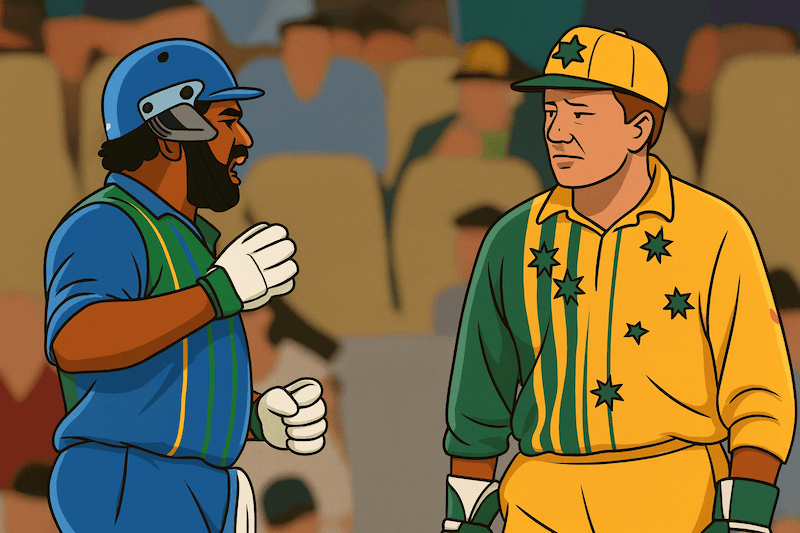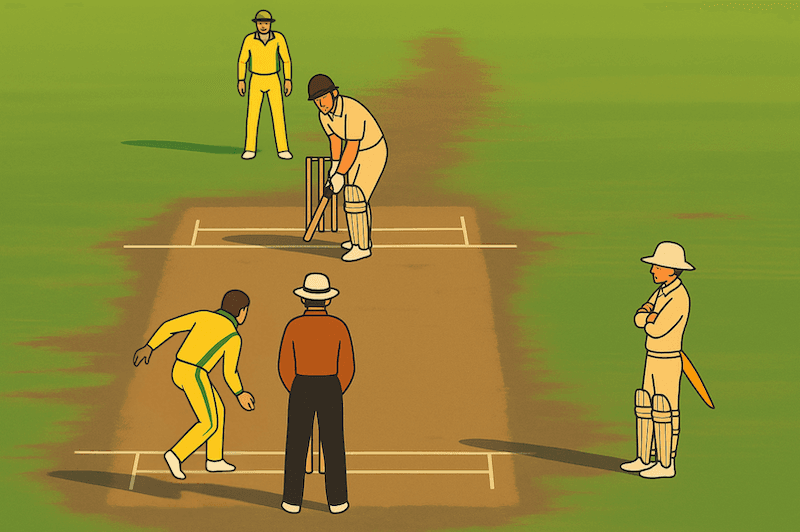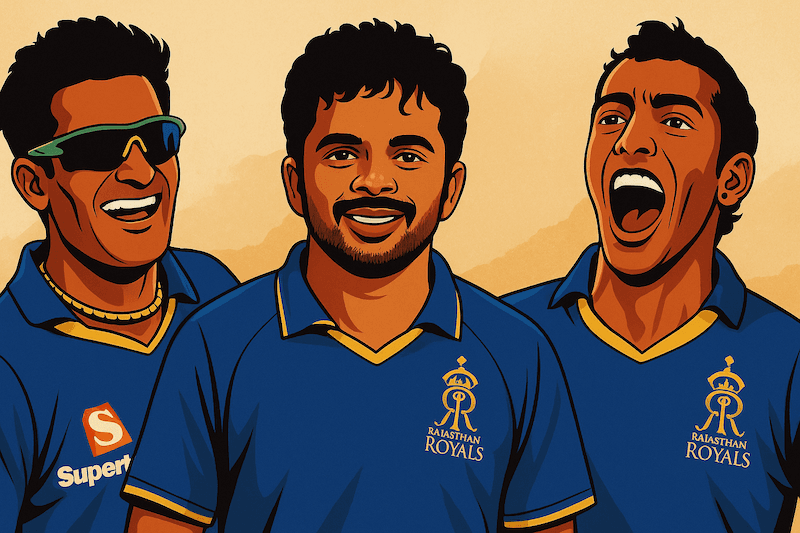
Recently, during the 2025 Asia Cup, a small moment created big headlines when the Indian team reportedly refused to shake hands with Pakistan after the match. But this was not the first time cricket saw such a moment of pride and protest.
Back in 1996, at the Sydney Cricket Ground, the Sri Lankan team walked off without shaking hands with Australia. It was not a mistake, it was a message. Leading that stand was Arjuna Ranatunga, Sri Lanka’s fierce and proud captain who refused to accept disrespect, no matter who it came from.
The Incident
The 1995–96 Sri Lanka tour of Australia had already turned tense. What began as a contest of cricketing skill had turned into a battle of pride and emotion, and the tension reached its peak at the Sydney Cricket Ground.
- It started with the Muralitharan controversy. During the Test series, umpire Darrell Hair called the young spinner several times for throwing. The Australians, including Shane Warne, mocked him openly, and the Sri Lankan team felt humiliated and unfairly treated.
- The anger carried forward, and by the time the second final was played at the Sydney Cricket Ground, everything was ready to explode.
- During the second final in Sydney, Arjuna Ranatunga, who was struggling with cramps, requested a runner. Ian Healy objected, saying, “You do not get a runner for being unfit.” He followed up by remarking, “You have cramp because you are fat.” The exchange led to a brief moment of tension on the field.
- Umpire Steve Randell first denied the request, influenced by the Australian protests. But as Ranatunga’s pain worsened, Sanath Jayasuriya finally came out as his runner in the 18th over. By then, the damage was done. The insults had already crossed the line.
- When Ranatunga was later dismissed, Warne passed a few taunting words as he walked past. That was the final straw. The Sri Lankans had reached their limit.
- After the match, Ranatunga made his stance clear. He instructed his players, “No one shakes hands.” The team complied, keeping their hands behind their backs as they walked straight off the field while the Australians waited. The crowd looked on in surprise. It was a quiet protest, but it spoke louder than any words.
The Aftermath
- The incident made headlines across the cricket world. Some called Ranatunga disrespectful, while others saw him as a captain who stood up for his team’s honour. For Sri Lanka, it was never about breaking tradition, it was about self-respect.
- Two months later came poetic justice. In the 1996 Cricket World Cup final, Sri Lanka faced Australia again. This time, Ranatunga’s men played with calm and confidence, chasing down the target in Lahore to lift the trophy. The same Australians who once mocked them now had to forcefully shake hands with the champions.
- The bitterness did not fade. Shane Warne later wrote that he found Ranatunga “irritating” and accused him of poor sportsmanship. Ranatunga, in return, often criticised Australia’s arrogance and behaviour on the field. Their rivalry lived on for years.
Final Note
The no handshake at Sydney was never about a lost game. It was about dignity, pride, and a captain who refused to bow down. In that quiet moment, Arjuna Ranatunga showed the world that respect cannot be demanded, it must be earned.
What looked like a small act of protest became one of cricket’s most powerful messages. Sometimes, silence speaks louder than words, and that night in Sydney, it spoke for an entire nation.














